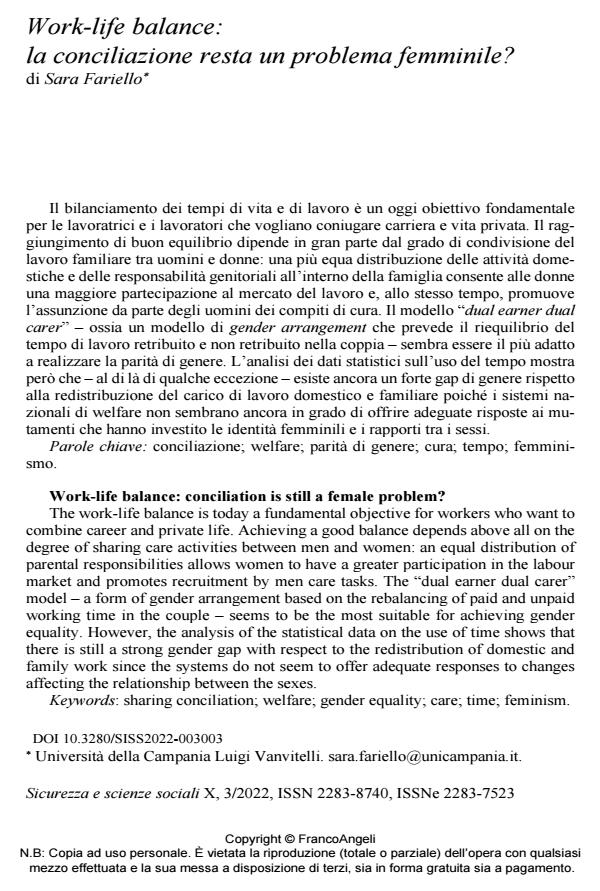Work-life balance: conciliation is still a female problem?
Journal title SICUREZZA E SCIENZE SOCIALI
Author/s Sara Fariello
Publishing Year 2022 Issue 2022/3
Language Italian Pages 24 P. 27-50 File size 262 KB
DOI 10.3280/SISS2022-003003
DOI is like a bar code for intellectual property: to have more infomation
click here
Below, you can see the article first page
If you want to buy this article in PDF format, you can do it, following the instructions to buy download credits

FrancoAngeli is member of Publishers International Linking Association, Inc (PILA), a not-for-profit association which run the CrossRef service enabling links to and from online scholarly content.
The work-life balance is today a fundamental objective for workers who want to combine career and private life. Achieving a good balance depends above all on the degree of sharing care activities between men and women: an equal distribu-tion of parental responsibilities allows women to have a greater participation in the labour market and promotes recruitment by men care tasks. The "dual earner dual carer" model - a form of gender arrangement based on the rebalancing of paid and unpaid working time in the couple - seems to be the most suitable for achiev-ing gender equality. However, the analysis of the statistical data on the use of time shows that there is still a strong gender gap with respect to the redistribution of do-mestic and family work since the systems do not seem to offer adequate responses to changes affecting the relationship between the sexes.
Keywords: sharing conciliation; welfare; gender equality; care; time; feminism.
Sara Fariello, Work-life balance: la conciliazione resta un problema femminile? in "SICUREZZA E SCIENZE SOCIALI" 3/2022, pp 27-50, DOI: 10.3280/SISS2022-003003